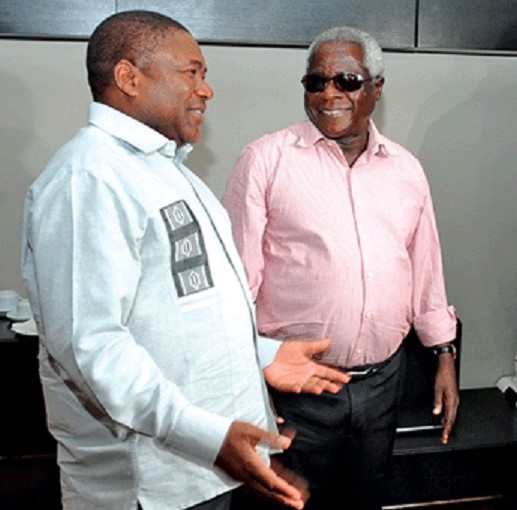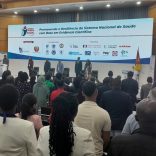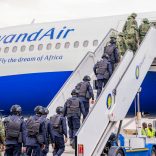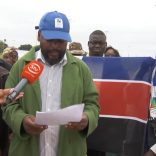Mozambique: Joel Amaral discharged from hospital - AIM report | Watch
Analysts question presence of mediators in Mozambican dialogue

File photo / President Filipe Nyusi in his last meeting with Afonso Dhlakama in February 2015
While the government and Renamo have named additional members of the Joint Committee preparing a meeting between President Filipe Nyusi and Renamo leader Afonso Dhlakama,
analysts are questioning the involvement of mediators in the process.
On Tuesday 28 June, former Commander in Chief of the General Staff of the Armed Forces of Defence of Mozambique (FADM) and current deputy of the Mozambique Liberation Front (Frelimo), António Hama Thai, Alfredo Gamito, former Frelimo deputy and former minister of state administration, and Edmundo Galiza Matos, deputy and spokesperson of the Frelimo parliamentary group were selected to join Jacinto Veloso, Benvinda Levi and Alves Muteque on the team representing the government in the negotiations with Renamo.
Last week, Renamo announced the appointment of Jeremias Pondeca, Maria Joaquina and Leovegildo Buanacasso to join José Manteigas, Eduardo Namburete and Andre Majibire, the three members of the main opposition party who have been negotiating with the government since May.
The government and Renamo teams have the task of preparing the meeting between the President and the leader of Renamo, seeking an agreement to end the clashes between the defence and security forces and armed men of the main opposition party, in the centre of the country.
However, political dialogue between Renamo and the Mozambique government may become stuck on the issue of mediation, because both South Africa and the European Union are themselves undergoing political and social upheaval.
Renamo has insisted on the issue of mediation and forced the government to accede to their demands, and analyst Fernando Mbanze agrees that the Renamo requirement makes sense, “because conditions for the two parties to negotiate without intermediaries do not exist”.
Journalist Fernando Gonçalves maintains that the time for such observers is already past, because nothing was done and Renamo did not create conditions for it to happen.
“Hopefully Renamo will not do the same again, and allow the observers to do their work without hindrance,” he says.
Academic Calton Cadeado points out that, when considering the question of mediation in negotiation processes, one must take into account that it must be by mutual agreement. Cadeado has doubts about this because of the reasons that are brought forward to justify Mozambique’s unique species of deadlock.
He also stresses the need to analyse South Africa’s internal situation.
“Does South Africa, at this time of internal turmoil, want to devote part of its energy to discussing the affairs of others? Even within South Africa, who will earn the consensus of the two parties?” he asks.
The same can be said about the European Union, an organisation which is currently in turmoil in the aftermath of the United Kingdom’s decision to leave.
Invitations have already been sent to the entities chosen by Renamo for the mediation of political dialogue with the government.













Leave a Reply
Be the First to Comment!
You must be logged in to post a comment.
You must be logged in to post a comment.